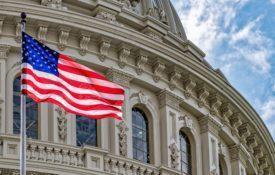-
How Scientists Learned to Enter People’s Dreams
Billionaires are jetting themselves into space and quantum computing lies around the corner. Yet one of the most familiar and everyday aspects of human nature remains frustratingly tricky for scientists to study – dreaming. Theories abound, but the truth is we don’t really know much about why or how we dream. A major hurdle for scientists has been the fact that when people are dreaming, they’re largely closed off from the world, at least that’s been the assumption for a long while. So researchers have resorted to asking people, upon awakening, what their mind was doing while they were sleeping, but that’s a sketchy and unreliable approach.
-

U.S. Senate Issues Budget Vision on NIH, NSF in 2022
Senate has advanced the dialogue on critical funding legislation that will strengthen the psychological science enterprise if it becomes law.
-

New Research in Psychological Science
A sample of research on risk perception, word-meaning representations, identity concealment and stigma, success and overconfidence, vigilance and attention, choice, integration of automated advice in decision, perception of 2D and 3D objects, and genetic factors involved in the judgments about casual sex and drug use.
-
How Pandemic Life Mimicked Pioneer Times
In the spring of 2020, faced with a deadly pandemic and instructions to stay at home, a remarkable number of Americans began baking bread. They planted vegetable gardens. They took up DIY home repair. They sat down for dinner with the same few family members—every single night. For anyone who was not an essential worker, the experience felt like a return to pioneer days. According to two studies published this year, in many ways, we really did reverse the clock. American activities, values and relationships began to resemble those found in small, isolated villages where life is a struggle and illness and death lurk outside the door.
-
Awe Makes You Feel Better. Here’s a Surprising Way to Find It.
This summer, Beverly Wax had an experience that filled her with awe. It wasn’t a gorgeous sunset, a sweeping mountain vista or the sound of waves gently lapping on a beach that got to her. It was the sight of her son Justin, 35 years old, lugging an 80-pound portable air conditioner up three flights of stairs to her Boston-area condo. Ms. Wax’s central air conditioning had conked out the day before—in the middle of a 90-plus degree heat wave. She’d mentioned to her son that she was having trouble finding someone to come fix it quickly. He’d shown up with the new unit as a surprise.
-
The Real Meaning of Freedom at Work
As the Covid-19 pandemic moves into a new phase, many companies have started insisting that we come back to the office full-time. In response, people are quitting their jobs in droves. Flexibility is now the fastest-rising job priority in the U.S., according to a poll of more than 5,000 LinkedIn members. More than half of Americans want their next job to be self-employed—some as entrepreneurs, others as freelancers in the gig economy or content curators in the creator economy. When Covid untethered us from our offices, many people experienced new forms of flexibility, and the taste of freedom left us hungry for more. We started rethinking what we wanted out of work.

